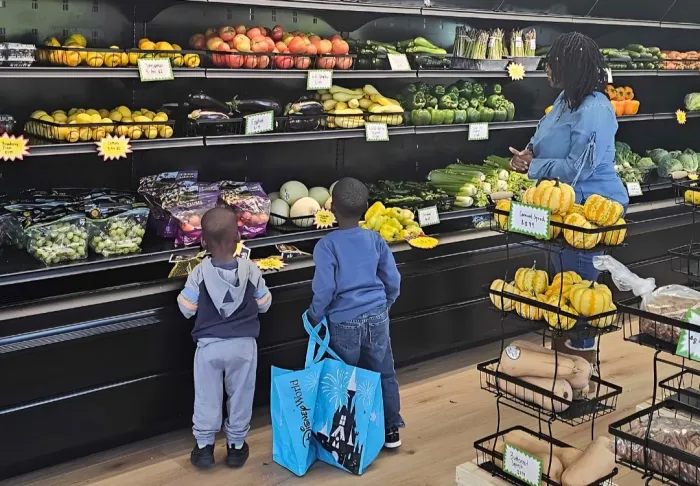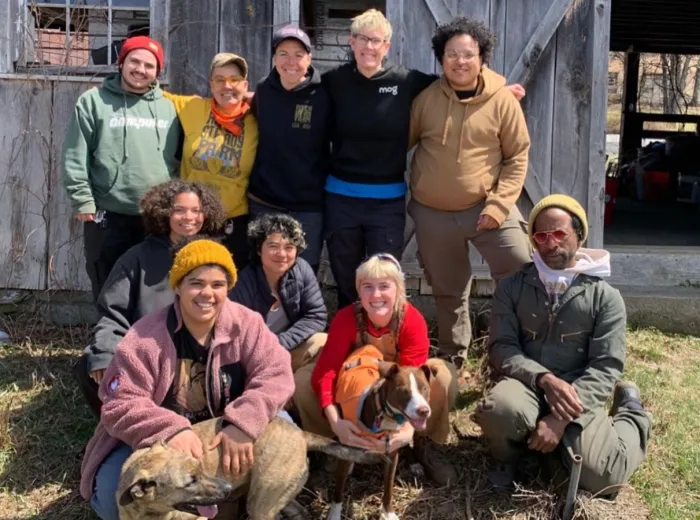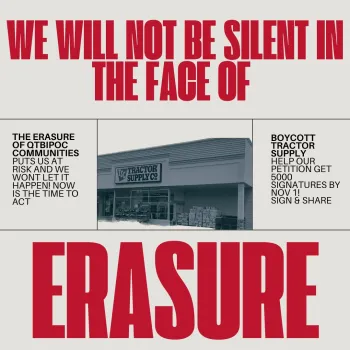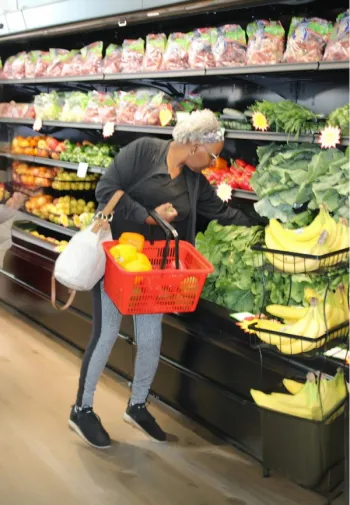
Cooperative solutions: Strengthening local food systems
Powerbuilding partners are transforming how food is grown, shared, and accessed—especially in communities that have long been denied investment and autonomy. From neighborhood markets to regional training programs, organizers, growers, and advocates are creating food systems rooted in culture, community, and collective care. These efforts aren’t waiting on top-down fixes—they’re reclaiming land, reshaping local economies, and proving that food justice is community-powered.
In New Orleans’ Lower Ninth Ward, decades of divestment became worse due to devastation by Hurricane Katrina. In response, Sankofa CDC launched a community farmer’s market in 2008, which grew from an open-air market to the Fresh Start Market in 2024, the ward’s only green, nonprofit-run grocery store.
Fresh Start Market was born out of a need for healthy, affordable food in the community because decades of disinvestment had left the area with limited access... it was that natural evolution of bringing local food directly to the community in this clean and bright space.
- Michelle Wilkerson

Building a store for the community is not easy. “There’s not a lot of models for a nonprofit-run grocery out there… It’s a learning curve and really having to bring in different and unique solutions to meet our needs and run a sustainable market in a way that aligns with our work,” says Michelle. Sankofa CDC works diligently to balance financially sustainable management with community impact: juggling staffing, open hours, and accessible pricing with cooking classes, health check-ins, and loyalty programs. Amidst this delicate balance, Sankofa CDC intends to expand the market to operating seven days a week, engaging more farmers in the community and growing the market’s footprint beyond their neighborhood.

We next move up north to a small Hudson Valley town called Millerton where Rock Steady Farm is modeling what an inclusive community looks like. On their farm, inclusion means centering the leadership of Queer and BIPOC communities. Rock Steady has spent over 10 years strengthening community systems by providing training to Queer and Trans BIPOC (QTBIPOC) farmers via programs like tractor trainings and “Pollinate”, their capacity building program for QTBIPOC farmers in the Northeast.
They really showed us that farming isn’t something you do in isolation—it’s a community-based project. There’s this myth that you can just farm on your own, but that’s not sustainable. What Rock Steady modeled is that everyone can contribute in different ways, and when there’s care, intention, and sharing, it becomes something others can take part in too. It’s not just all on you.
- Amanda, a participant in Rock Steady’s Pollinate program
Rock Steady’s programming exemplifies the ways that collective power can contribute to building something beautiful and impactful.

Rock Steady is also ready to mobilize its network for allied causes, like in 2024 when they gathered a coalition of farms and farmers to push back against the Tractor Supply Company’s removal of DEI and accountability programs. “We’re patrons of that corporation, so it really hit a chord. I kept reaching out to everyone, and there was so much weight behind those individual interviews. So, we launched a campaign and petition against Tractor Supply, calling on our community to boycott them and demand the CEO’s resignation. Within the first week, we had 1,600 signatures and support from about 60 organizations—including some with national reach,” shared Maggie Cheney, Co-Founder of Rock Steady Farm. Despite that Tractor Supply has not reversed course on their decision, the widespread support of Rock Steady’s campaign and the collective action to uplift and affirm the presence of intersectional identities in rural communities and farming spaces speaks volumes about cooperative power.

Across regions and roles, our Powerbuilding partners are forging a path where food is not just sustenance, but strategy—where farming is not only labor, but liberation. Whether it’s cultivating new markets in New Orleans or growing inclusive networks in the Hudson Valley, these efforts show what becomes possible when communities lead with vision and values. Together, they remind us that building an equitable food system is not about scale—it’s about solidarity and the courage to plant something different.

